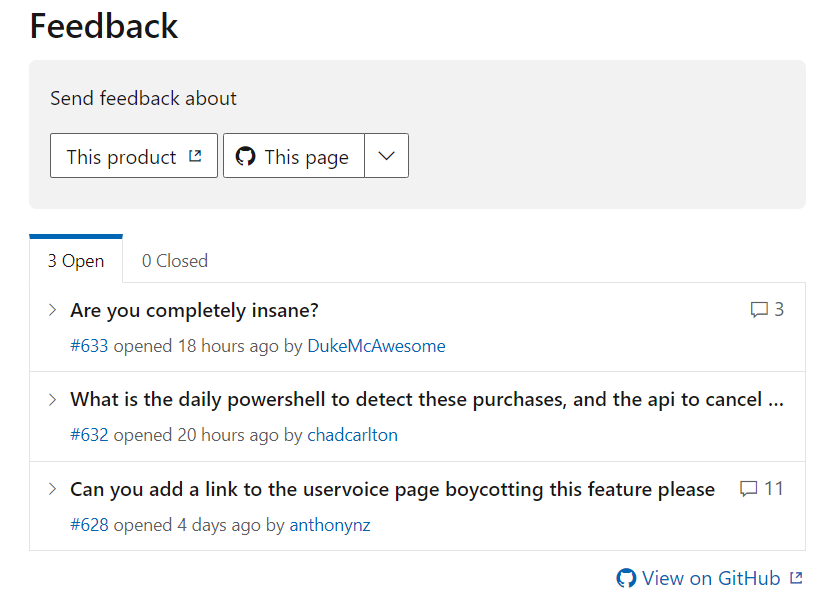Microsoft's self-service scheme will let users bypass IT admins
From 19 November, users can purchase Power Platform licenses without consulting their IT departments


Microsoft has released further details around a contentious self-service scheme for Power Platform applications, which gives end-users the capacity to bypass IT administrators to purchase certain product licenses.
From 19 November, most commercial cloud customers in the US can purchase Power BI, PowerApps and Flow licenses on their own accord without having to consult with their IT departments.
The first software to become available through self-service will be Power BI on 19 November, followed by PowerApps and Flow from 4 December, according to FAQs released by Microsoft.
"As a result of digital transformation, traditional roles are changing," Microsoft said.
"As employees become more independent and better versed in technology, we've seen increased demand from both users and organizations to enable users to buy subscriptions on their own.
"The intent of the self-service purchase option is to enable users to develop their own solutions to unlock productivity and drive business impact, while respecting organisations' data governance and compliance."
Customers will be able to make self-service purchases through the Power Platform websites, and will only need to provide their Microsoft Azure Active Directory (AD) credentials to verify their identity. They'll then be given the choice over which subscriptions they wish to purchase before providing payment card details.
Get the ITPro daily newsletter
Sign up today and you will receive a free copy of our Future Focus 2025 report - the leading guidance on AI, cybersecurity and other IT challenges as per 700+ senior executives
The scheme won't work for Azure users within government, non-profit, or educational organisations, and neither will the scheme be available outside of the US initially. Guest users, too, cannot make self-service purchases.
Although Microsoft has provided its rationale behind self-service, the scheme is not likely to be popular among IT administrators, who will wish to retain full control and awareness over deployments within businesses.
With shadow IT a major concern across businesses, given the rise of practices such as bring your own device (BYOD), self-service schemes such as this are likely to exacerbate the headache that IT admins face.
The force of feeling has been voiced by Github users providing feedback to the news, with one user comment titled "Are you completely insane?", and reading: "Please rescind this immediately, businesses have strict procurement processes in place for a reason".

A sample of feedback from Microsoft users and IT admins
IT Pro discussed the potential implications for such a policy with its own IT department, with administrators expressing unease at the principal of being forced to relinquish control. They suggested the self-service scheme could also lead to a loss of control over IT budgets, depending on how pricing is structured. The ability to set permissions and access controls could also be undermined.
Microsoft has said the individuals who buy the subscriptions through self-service will be responsible for payment, although these can still be paid for through company finds, including IT budgets, depending on the policy of individual organisations.
Microsoft has also said IT administrators can see self-service purchases through the Microsoft 365 admin centre console, alongside all other subscriptions purchased through central procurement channels. The details available to them include the product, purchaser name, subscription period, order history, purchase price and assigned user.

Keumars Afifi-Sabet is a writer and editor that specialises in public sector, cyber security, and cloud computing. He first joined ITPro as a staff writer in April 2018 and eventually became its Features Editor. Although a regular contributor to other tech sites in the past, these days you will find Keumars on LiveScience, where he runs its Technology section.
-
 Should AI PCs be part of your next hardware refresh?
Should AI PCs be part of your next hardware refresh?AI PCs are fast becoming a business staple and a surefire way to future-proof your business
By Bobby Hellard Published
-
 Westcon-Comstor and Vectra AI launch brace of new channel initiatives
Westcon-Comstor and Vectra AI launch brace of new channel initiativesNews Westcon-Comstor and Vectra AI have announced the launch of two new channel growth initiatives focused on the managed security service provider (MSSP) space and AWS Marketplace.
By Daniel Todd Published
-
 'Embrace PowerShell for better security', say UK, US, NZ cyber authorities
'Embrace PowerShell for better security', say UK, US, NZ cyber authoritiesNews The powerful automation and IT administrative tool has been used by hackers as an attack tool, but proper configuration can take the power out of their hands
By Connor Jones Published
-
 Microsoft tells IT admins to turn off legacy group policies to improve Windows performance
Microsoft tells IT admins to turn off legacy group policies to improve Windows performanceNews Though the recommendations are supposed to simplify the management of environments, admins say they are being given conflicting advice from the company
By Connor Jones Published
-
 Five things to consider when planning your Windows 10 migration
Five things to consider when planning your Windows 10 migrationIn-depth Whatever stage your migration strategy is at, here are some tips to smooth the journey
By Keumars Afifi-Sabet Published
-
 Four steps to successful Apple device management in your business
Four steps to successful Apple device management in your businessIn-depth Apple devices are rising in popularity, so how can you deploy and manage them in your organisation?
By Esther Kezia Thorpe Published
-
 What is technical debt and how can businesses tackle it?
What is technical debt and how can businesses tackle it?Explainer Putting off essential upgrades can lead to a build-up of technical debt, and spiralling costs down the line
By Sandra Vogel Last updated